
Relational Morality and the Criminal Law
Workshop • July 6–8, 2023 • Freiburg/Germany
Max Planck Institute for the Study of Crime, Security and Law
The workshop will address the significance of second-personal/relational conceptions of morality for criminal law and criminal procedure. Despite the vast importance that these conceptions have gained in contemporary ethics in recent years, their possible implications for criminal law, especially in Germany, are still relatively unexplored. One reason may be the peculiarities of (German) criminal law and its theory, according to which crimes are traditionally understood as wrongs that, normatively speaking, take place solely in the relationship between the offender and the state. We believe that second-personal or relational approaches in ethics, as developed by Stephen Darwall or Jay Wallace, challenge this traditional understanding and can be a productive basis for normative theorizing in criminal law. In this workshop, we will bring together philosophers dealing with questions of second-personal/relational morality as well as legal philosophers and theorists from both the Anglo-American and German legal traditions in order to explore the extent to which a second-personal/relational understanding of morality can or should shape our understanding of criminal law and criminal procedure. Their presentations will address the theoretical foundations of criminal law, doctrinal questions of substantive criminal law, and the structure of criminal procedure.
Program
– Provisional Program –
| Thursday, 6 July 2023 | |
|---|---|
| 10:00–10:30 | Philipp-Alexander Hirsch / Erasmus Mayr Welcome and Introduction |
| 10:30–11:45 | R. Jay Wallace (Berkeley) Morality and “the General Regulation of Behavior” |
| 11:45–13:00 | – lunch break – |
| 13:00–14:15 | Armin Engländer (München) The German Doctrine of the Protection of Legal Goods as the Task of Criminal Law. Critical Remarks on an Alleged Achievement of German Criminal Law Theory |
| 14:15–15:30 | Leora Dahan Katz (Jerusalem) Wrongs and Wrongings |
| 15:30–16:00 | – coffee break – |
| 16:00–17:15 | Philipp-Alexander Hirsch (Freiburg) Crimes as Status Violations. Relational Morality, Dignity, and the Criminal Law |
| Friday, 7 July 2023 | |
| 9:30–10:45 | Herlinde Pauer-Studer (Wien) The Perpetrator‘s Will in Authoritarian and Liberal Criminal Law |
| 10:45–11:00 | – coffee break – |
| 11:00–12:15 | Tatjana Hörnle (Freiburg) The Impact of a Second-Person Viewpoint on Criminal Law Doctrine |
| 12:15–14:00 | – lunch break – |
| 14:00–15:15 | Victor Tadros (Warwick) Relational Consent to Sex and the Limits of the Law |
| 15:15–16:30 | Gideon Yaffe (Yale) Aggressive Action as Second-Personal Address |
| 16:30–17:00 | – coffee break – |
| 17:00–18:15 | Erasmus Mayr (Erlangen) Wronging, Personal Complaint, and the Criminal Law |
| Saturday, 8 July 2023 | |
| 9:30–10:45 | Antje Du Bois Pedain (Cambridge) Relational Morality in the Public Domain |
| 10:45–11:00 | – coffee break – |
| 11:00–12:15 | Stephen Darwall (Yale) Criminal Law is to Private Law as Representative Authority is to Individual Authority |
| 12:15–12:30 | Closing Remarks |
About us

The workshop is organised by Dr. Dr. Philipp-Alexander Hirsch and Prof. Dr. Erasmus Mayr.
Erasmus Mayr holds the Chair of Practical Philosophy at the Friedrich-Alexander University of Erlangen-Nuremberg. His work focuses on the theory of action, fundamental questions of ethics and meta-ethics, political philosophy, and the philosophy of law.
Philipp-Alexander Hirsch is Leader of the Independent Research Group “Criminal Law Theory” at the Max Planck Institute for the Study of Crime, Security and Law in Freiburg. His research focuses on criminal law and criminal procedure, legal philosophy and legal theory, and the history and philosophy of criminal law in the Age of Enlightenment.
The Max Planck Research Group “Criminal Law Theory” focuses on the analysis of substantive criminal law and criminal procedure and the doctrine in these areas; the analysis centers on the underlying normative structures and principles in order to assess their coherence, justifiability, and persuasiveness. The aim is to draw on the fruits of this analysis to engage in normative theory-building that proposes solutions to problems in criminal law that go beyond interpreting the positive law.
Short Summary and Picture Gallery
The workshop, which took place at the beginning of July 2023 at the Max Planck Institute for the Study of Crime, Security and Law in Freiburg i. Br., brought to light a variety of different viewpoints on whether and to what extent relational approaches in morality have a radiating effect on criminal law. Building in particular on the fundamental writings of Wallace and Darwall, the pros and cons of an integration of relational or second-personal points of view were discussed; differences in the respective legal systems were also elaborated and compared. The exchange between legal philosophers and criminal lawyers led to stimulating discussions which will be reflected in a planned special volume in an international journal.
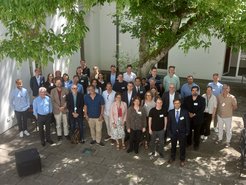
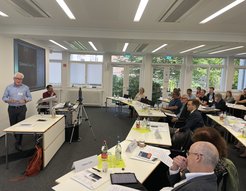
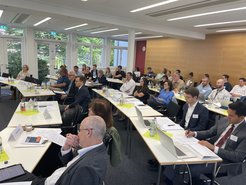
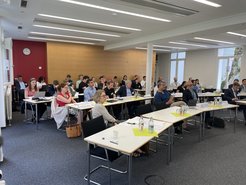
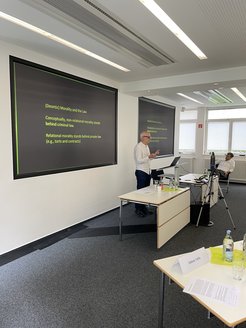
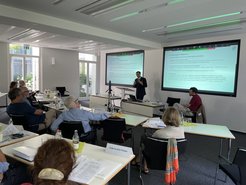
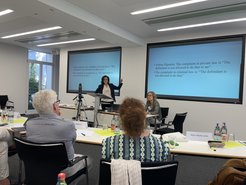
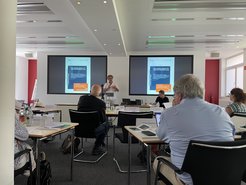
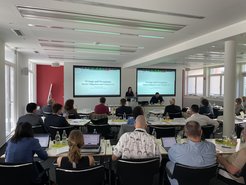
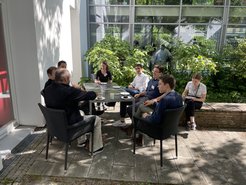
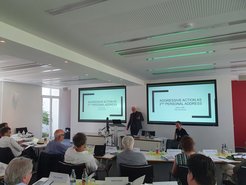
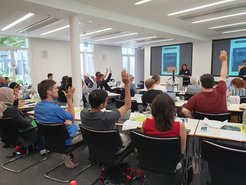
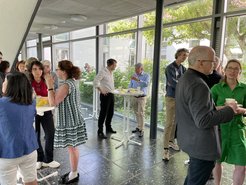
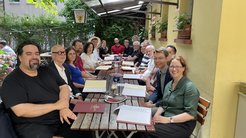
Workshop Report (Archiv für Rechts- und Sozialphilosophie)
The detailed workshop report, written by Johannes Stefan Weigel and Svenja Schwartz, has been published in the Archiv für Rechts- und Sozialphilosophie:














